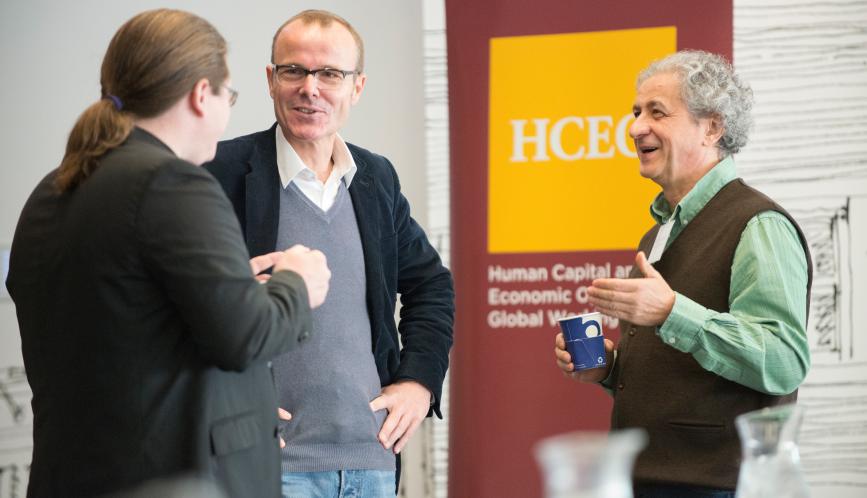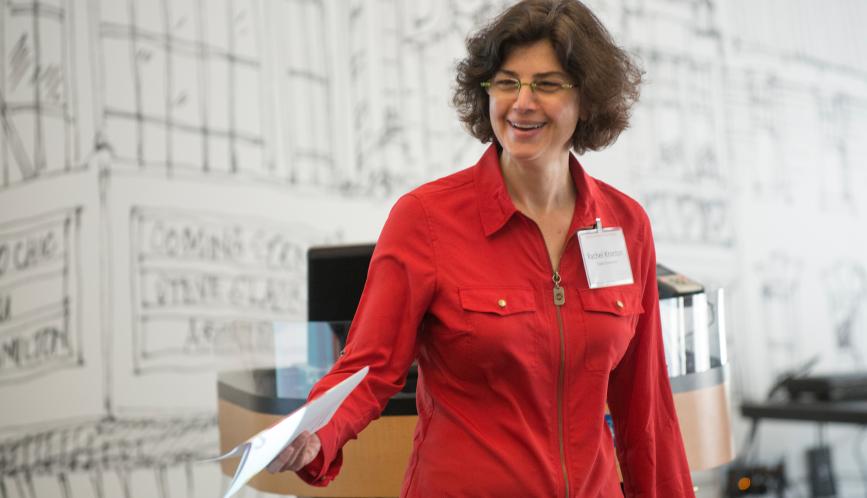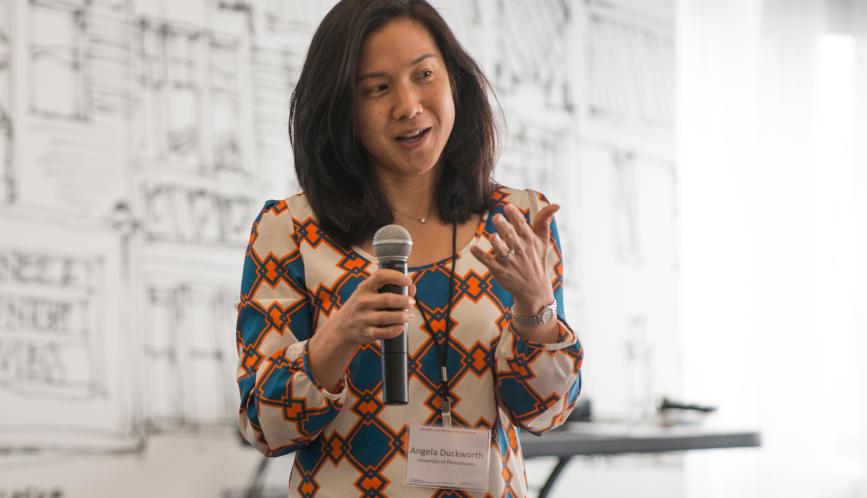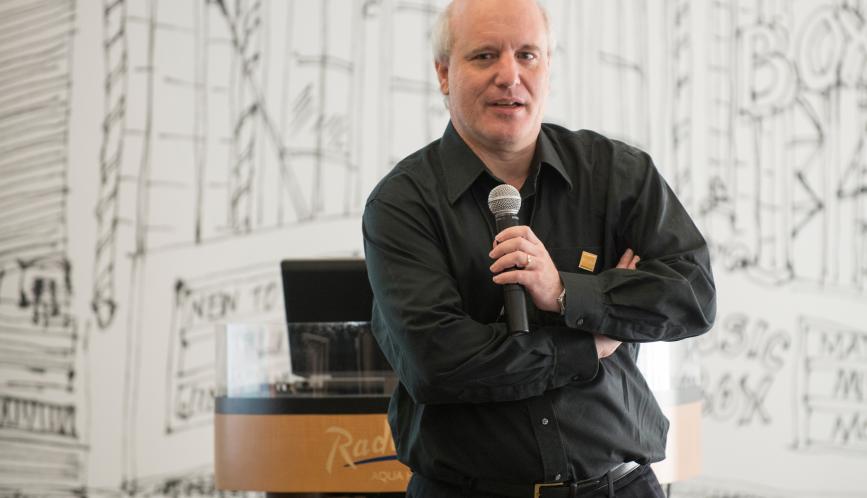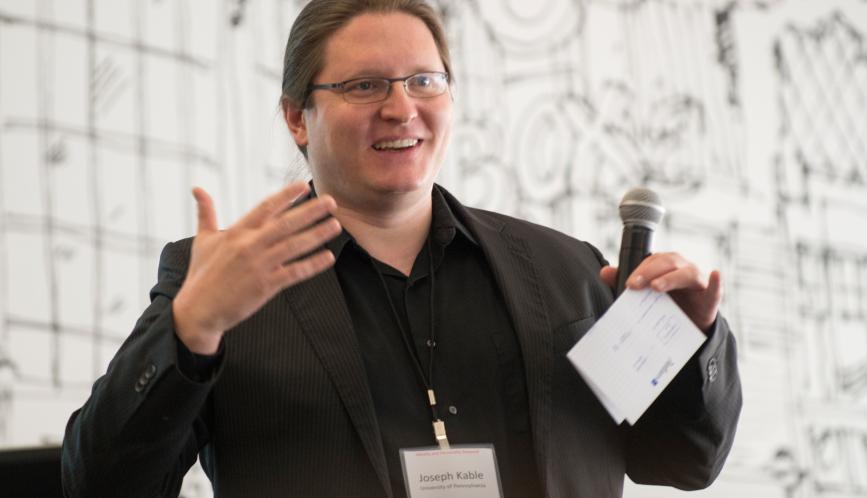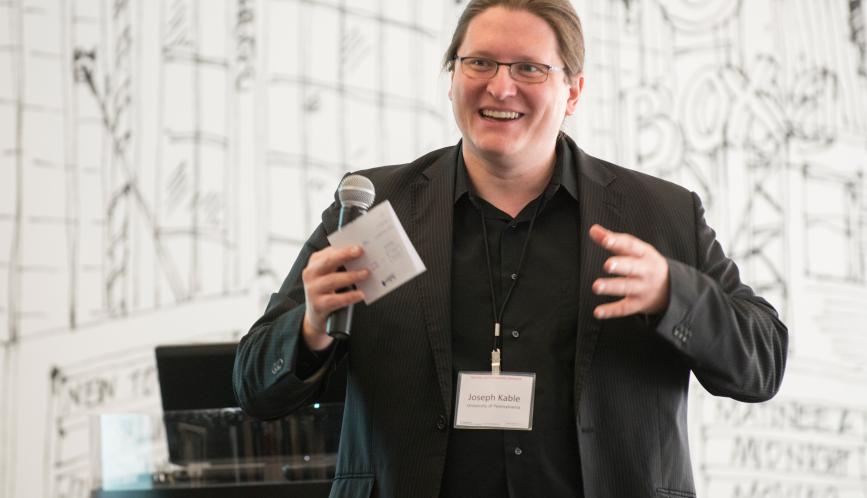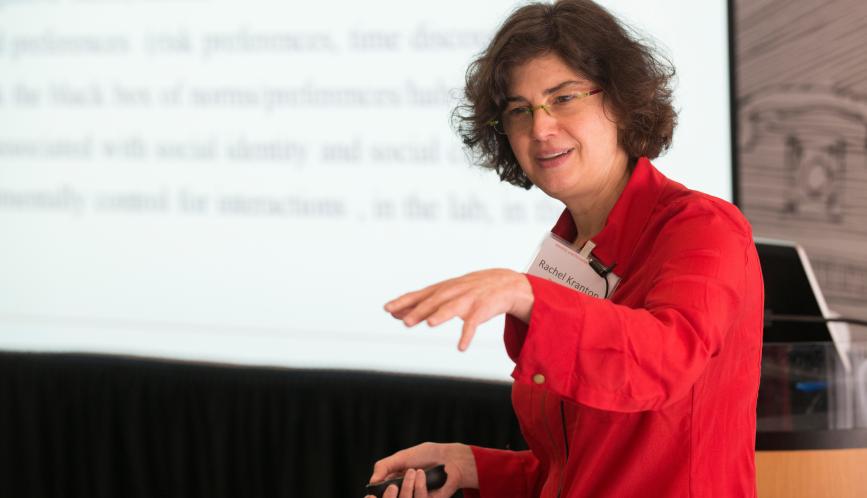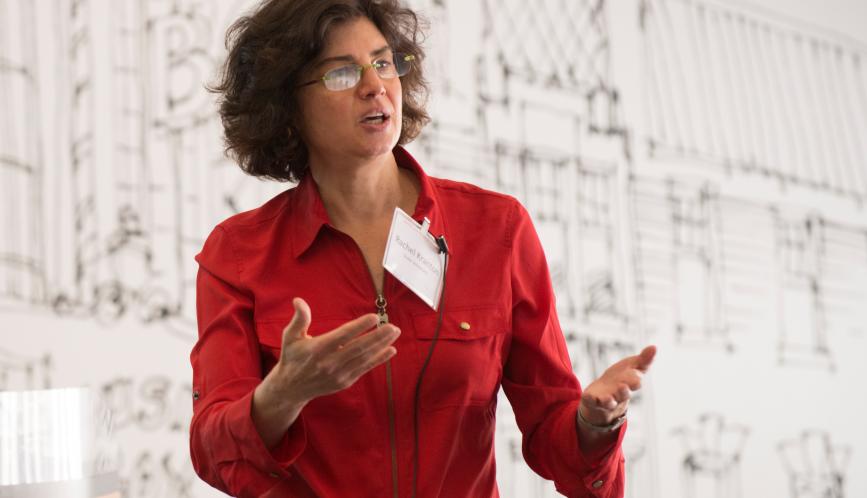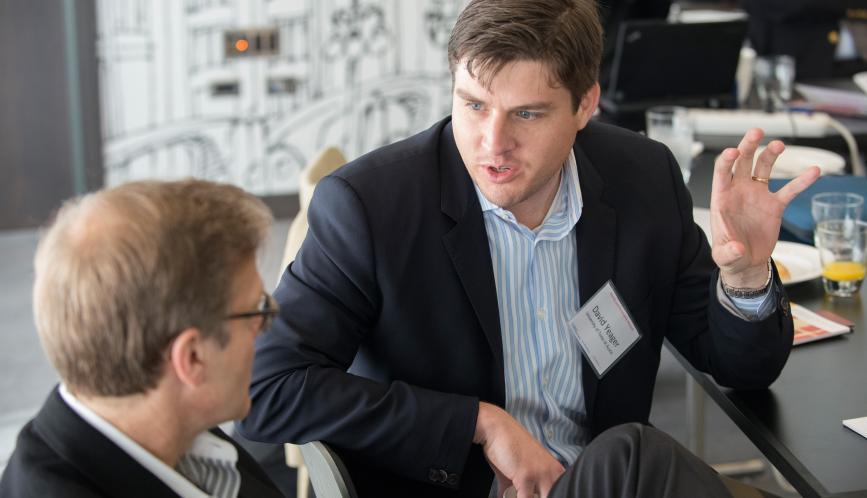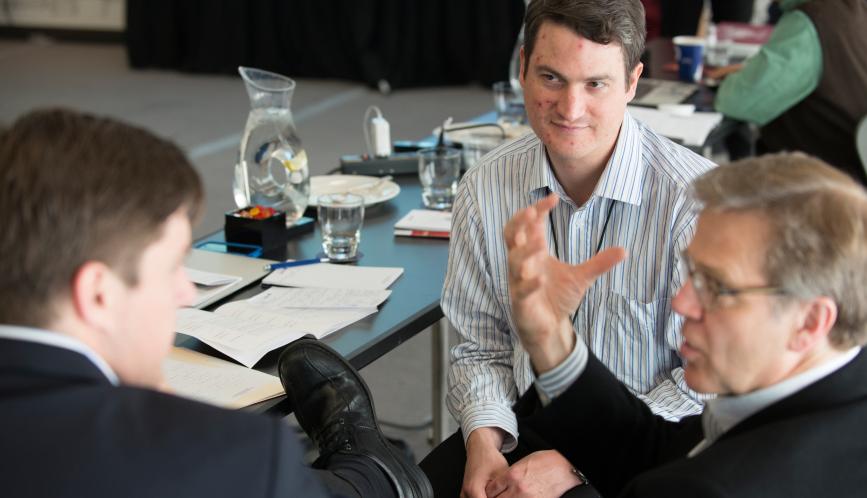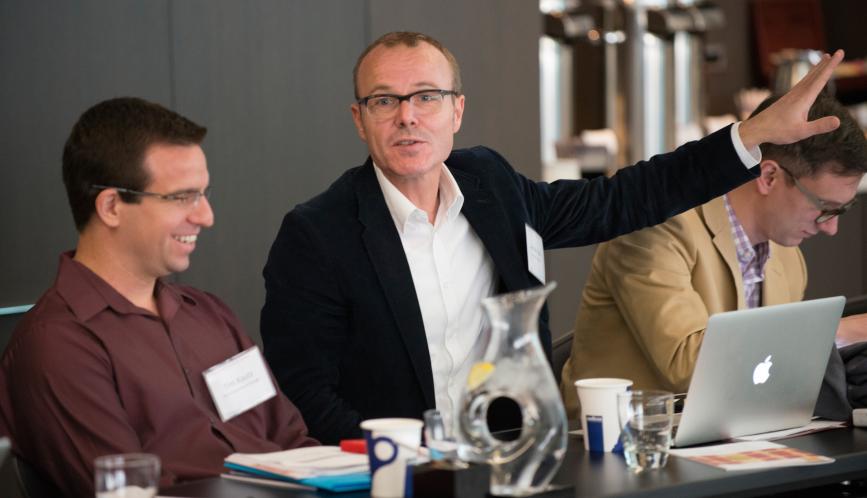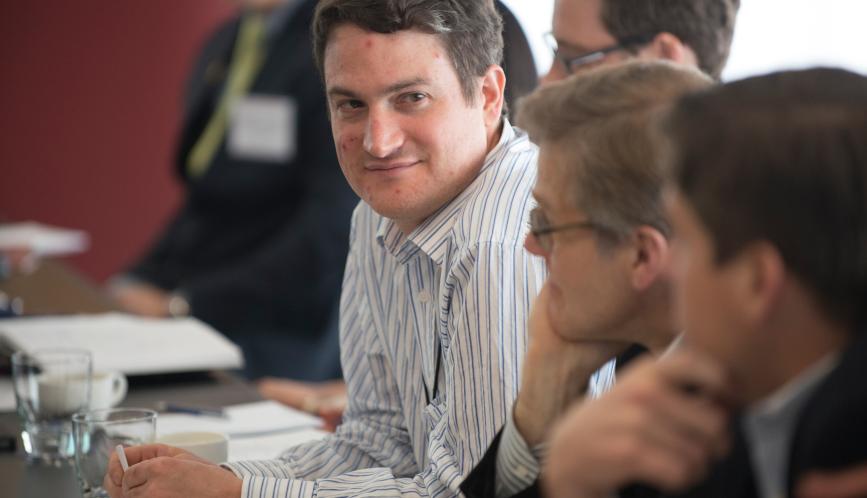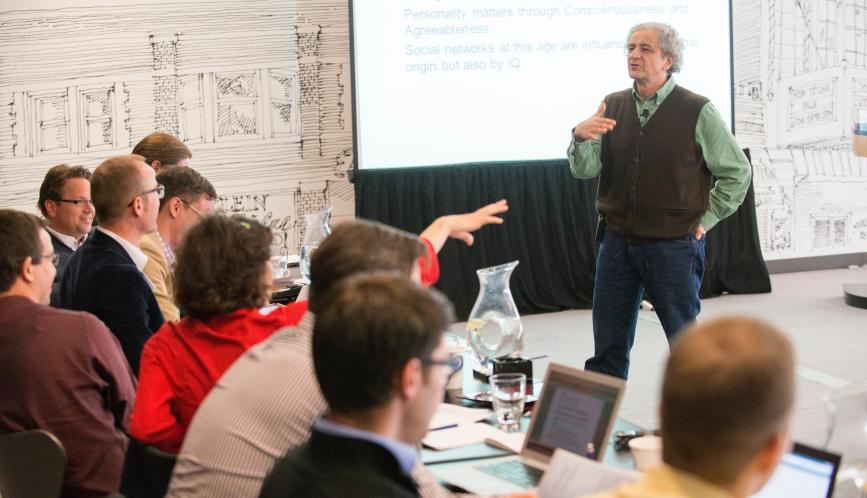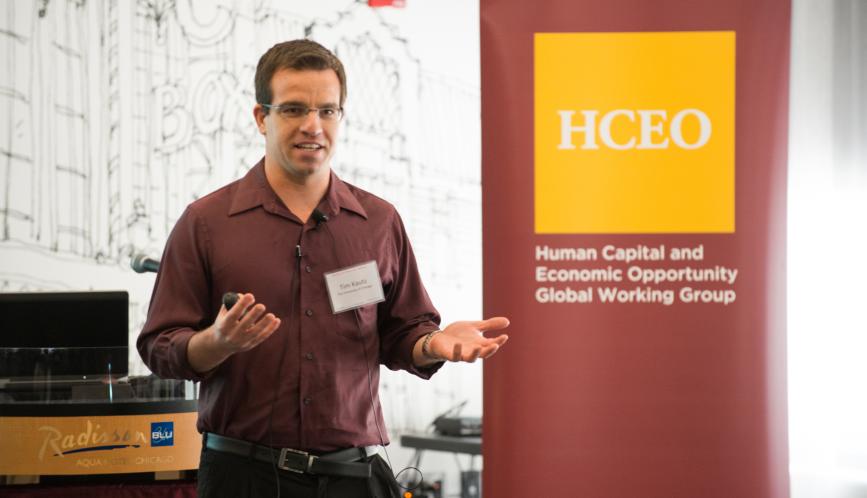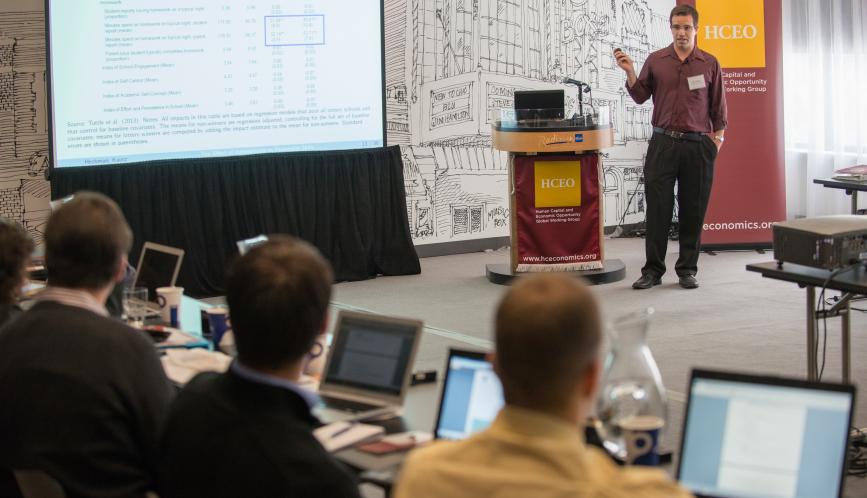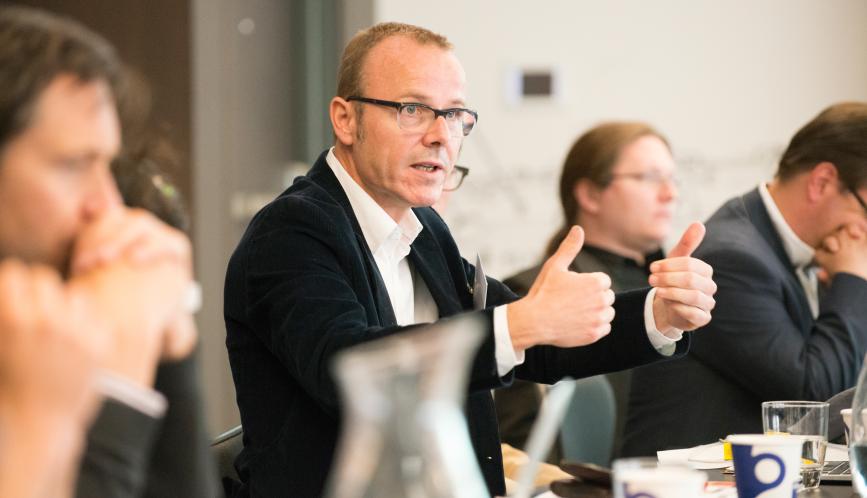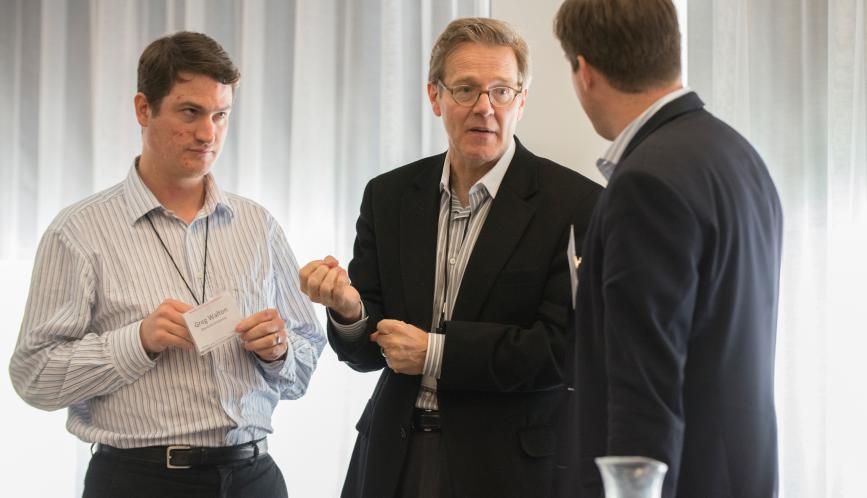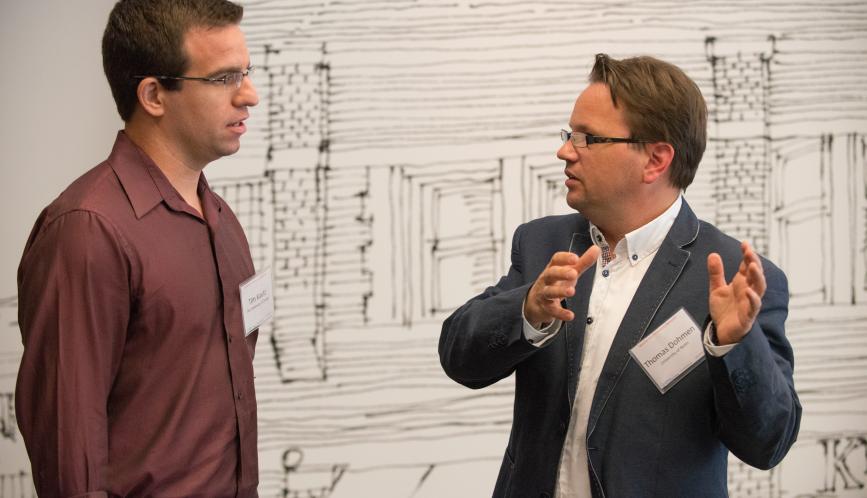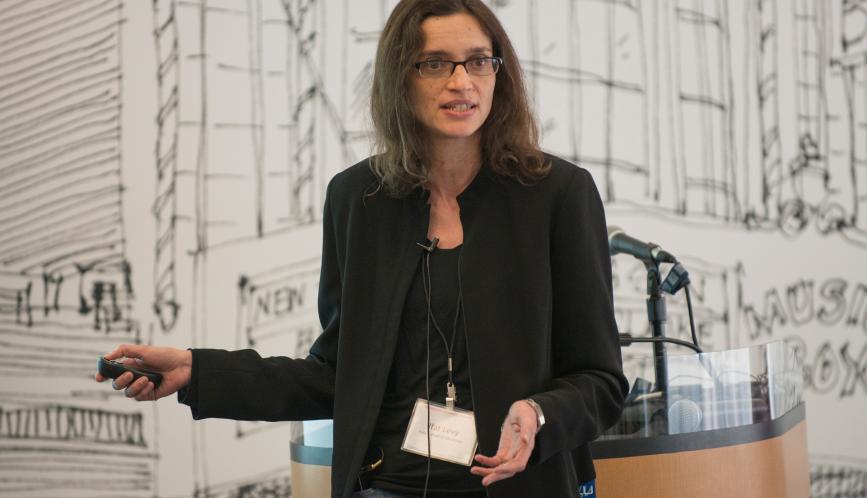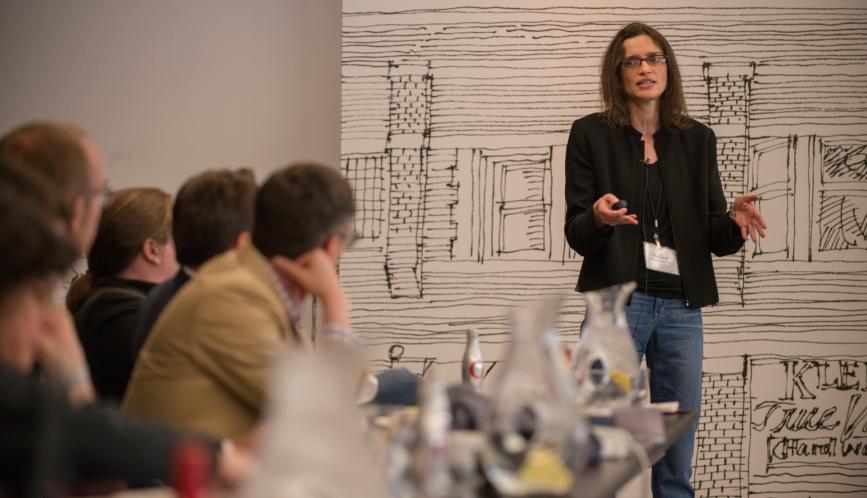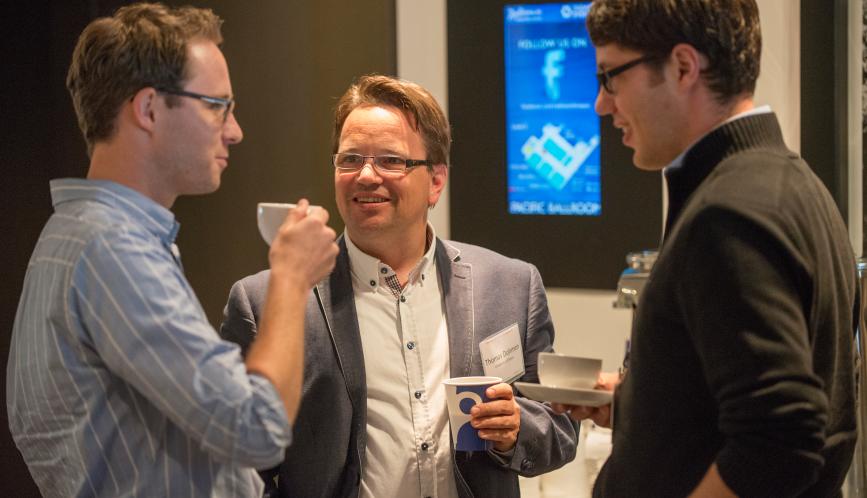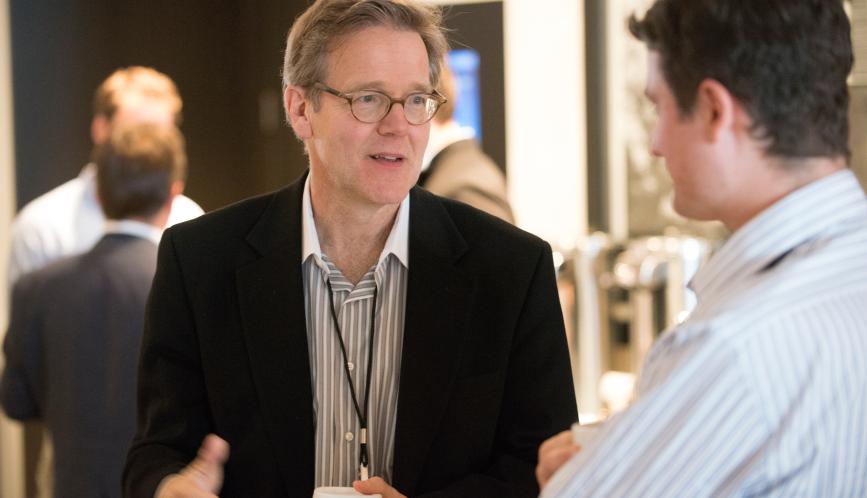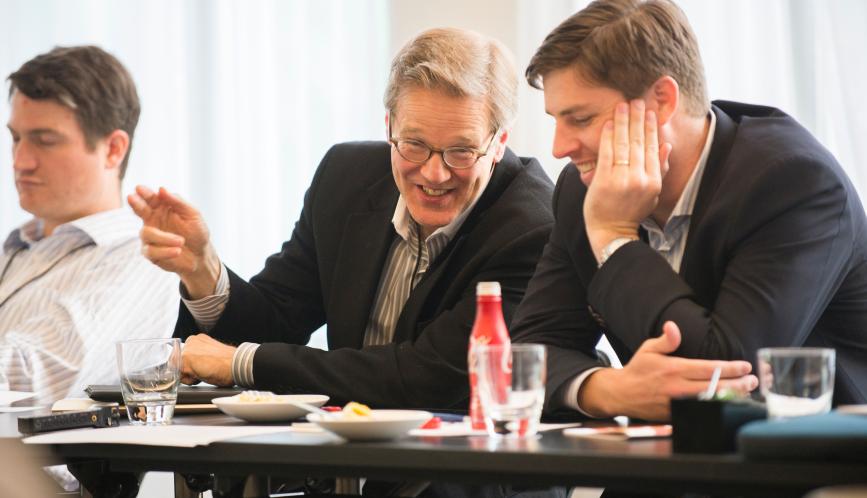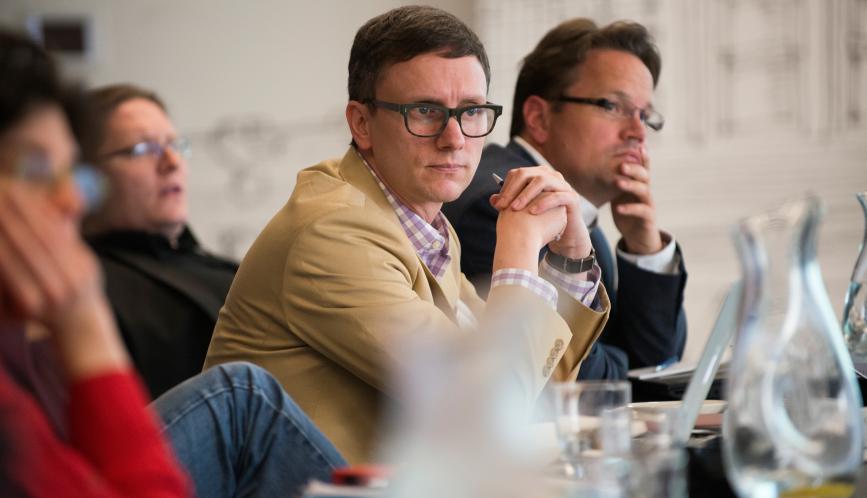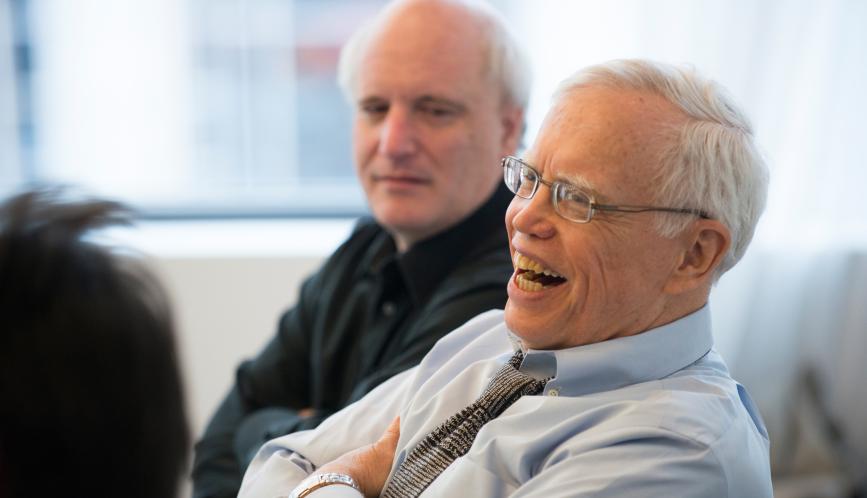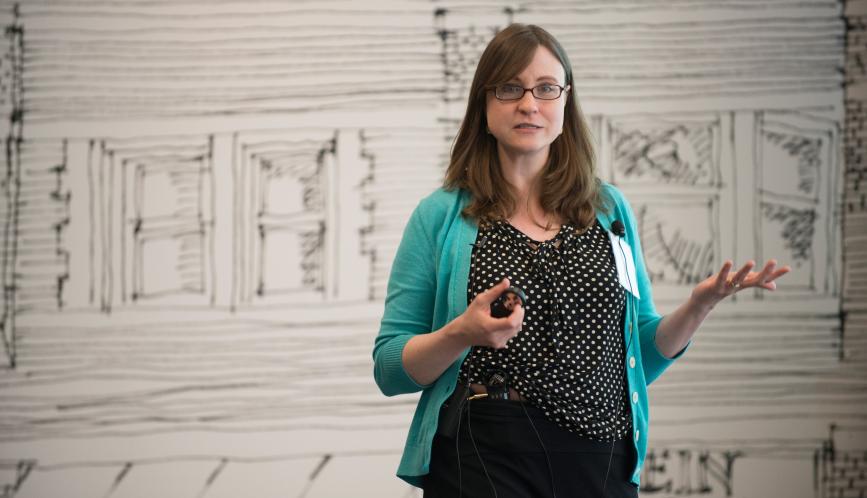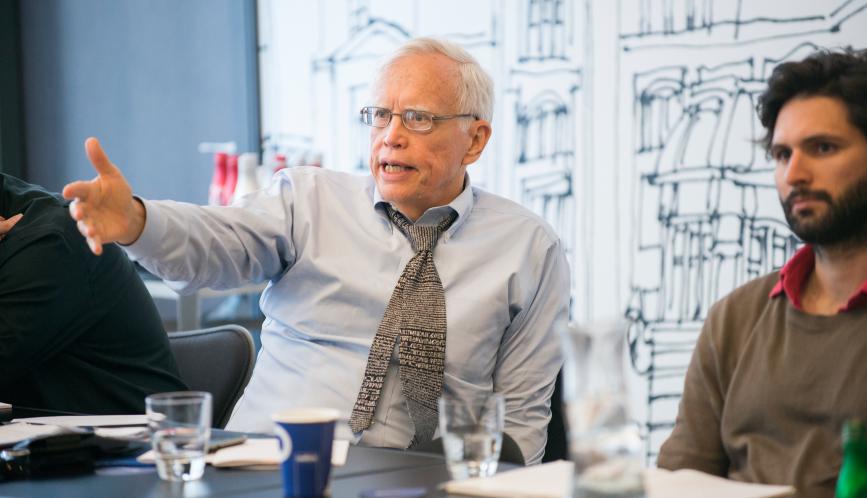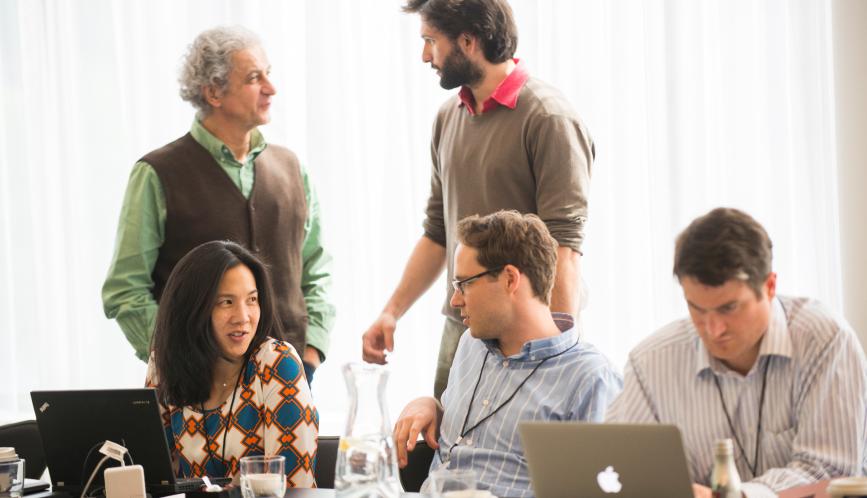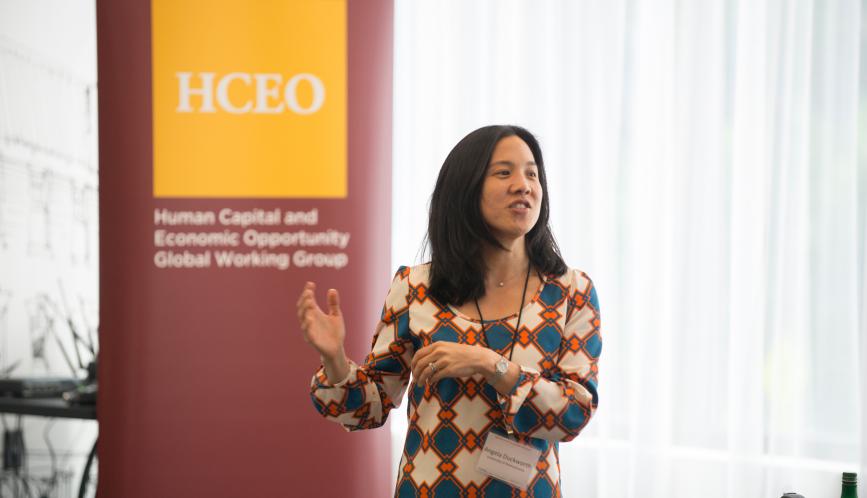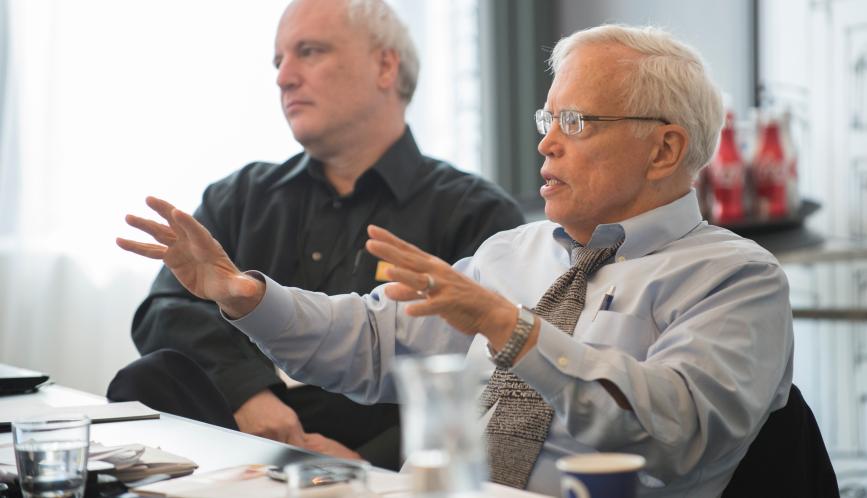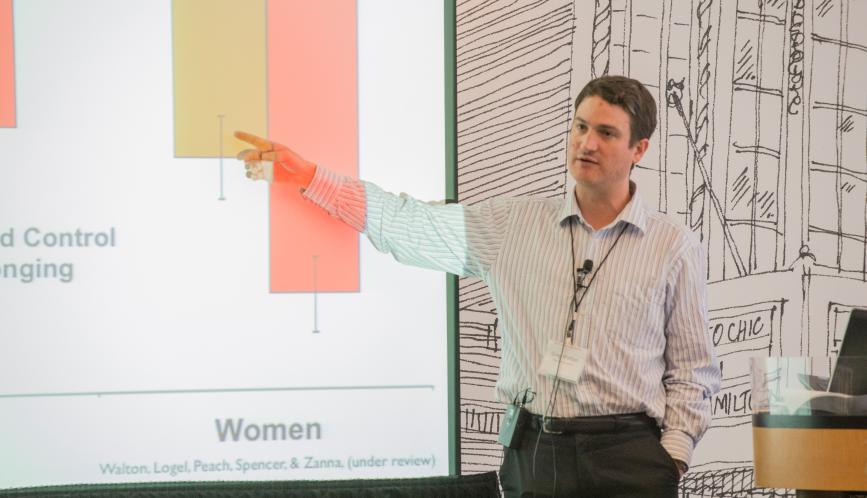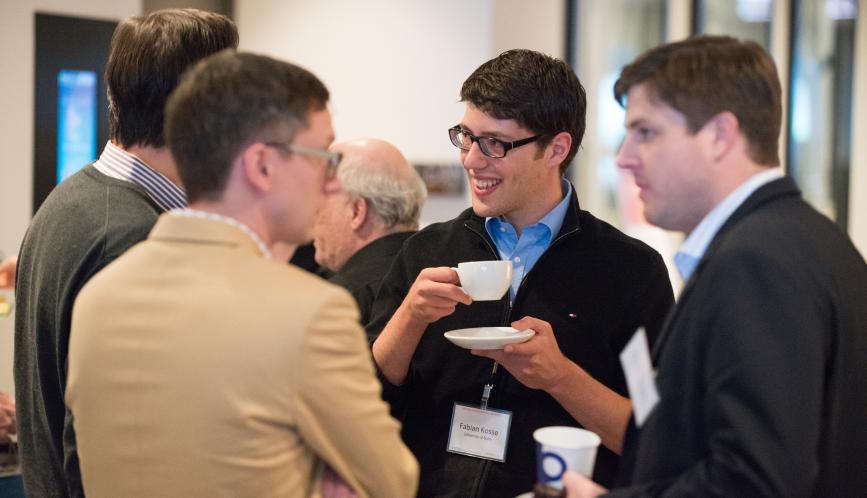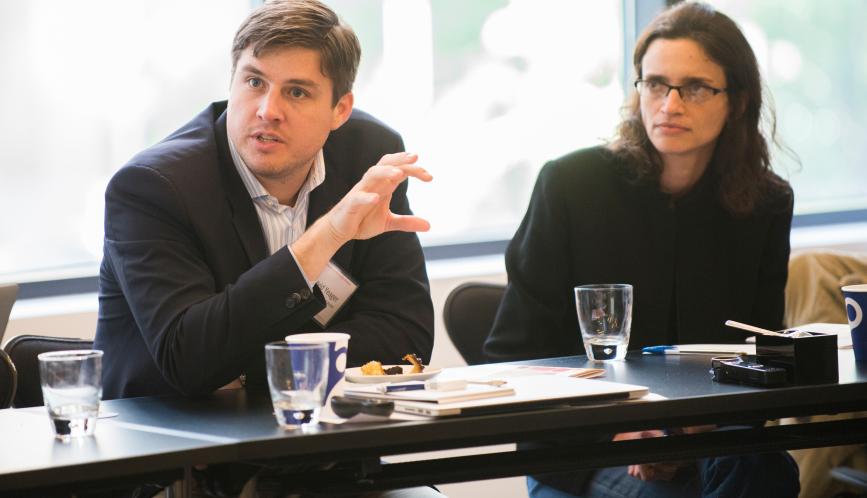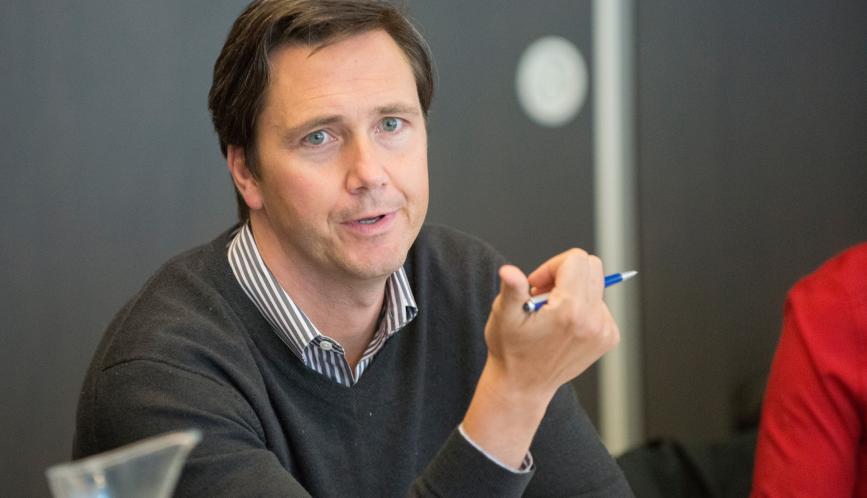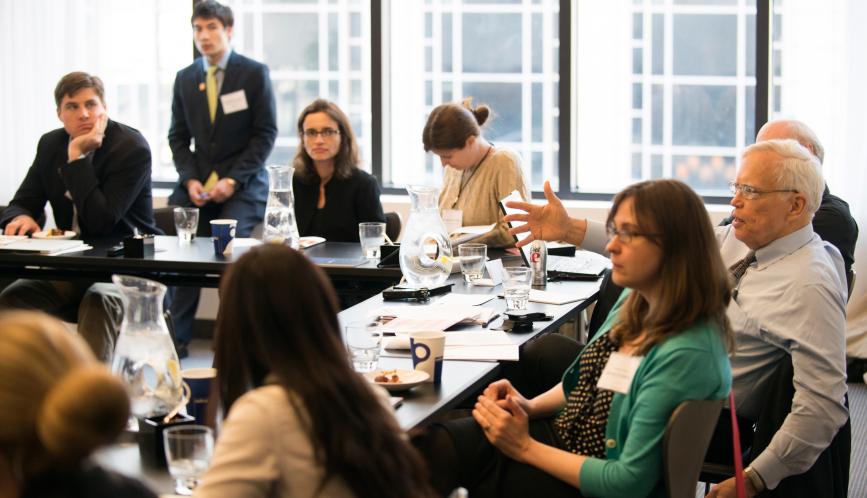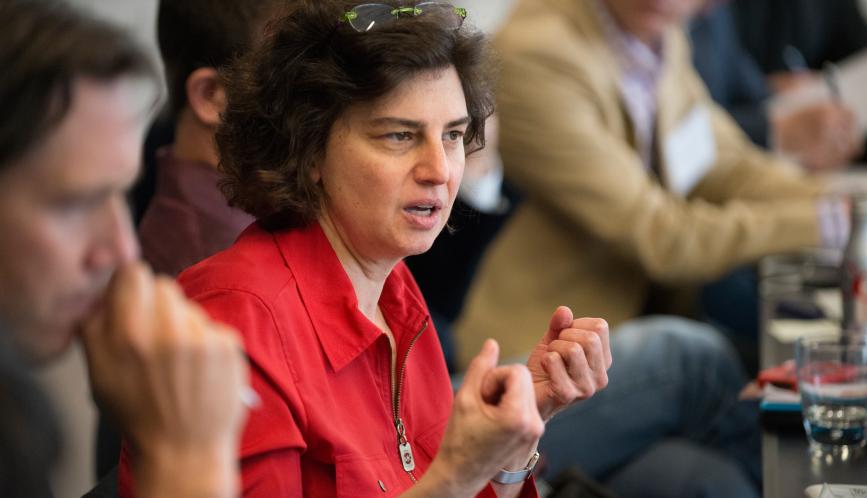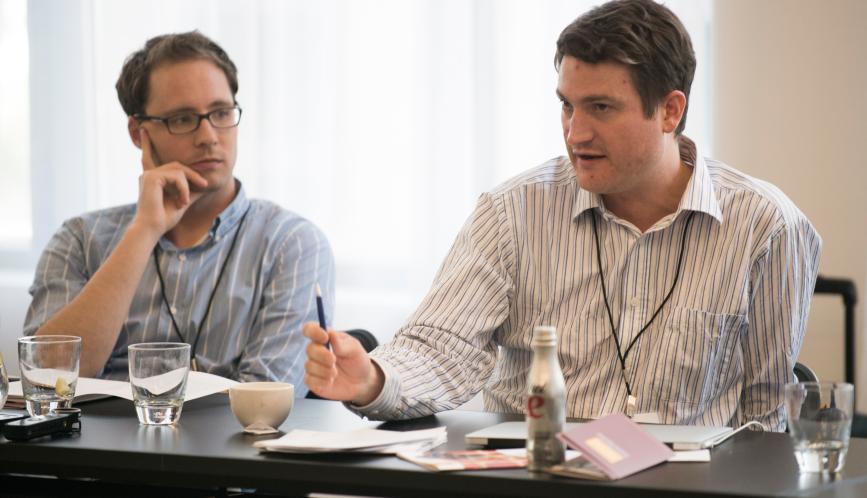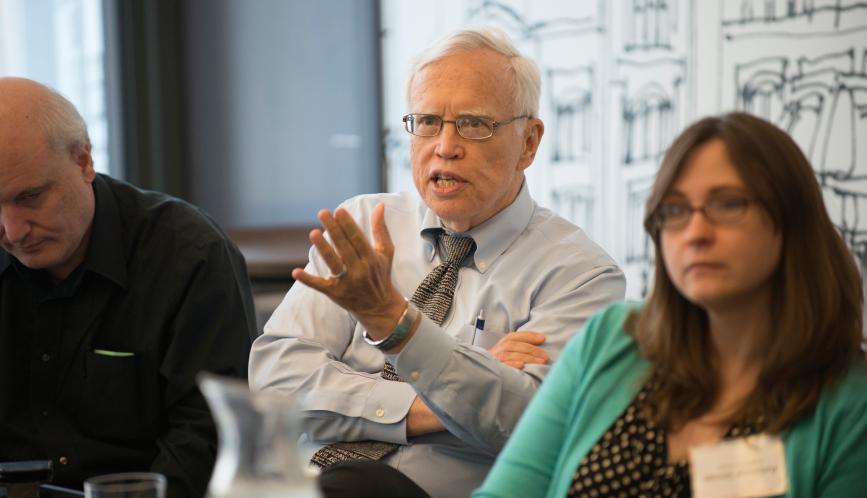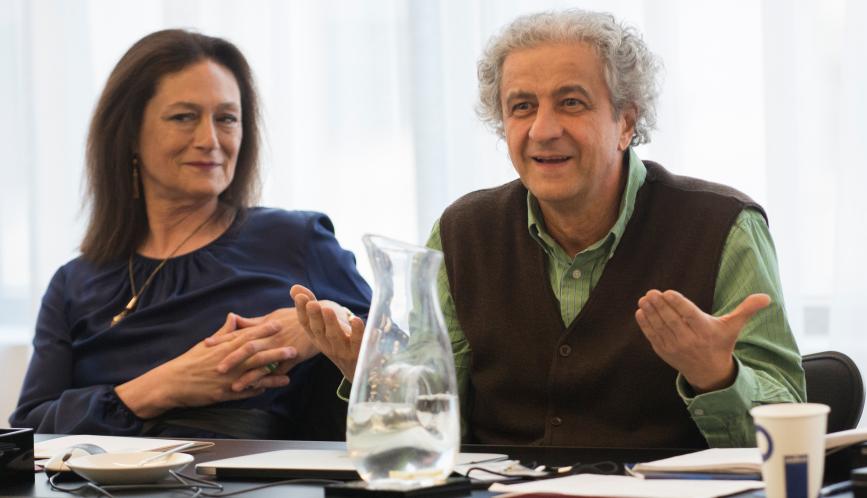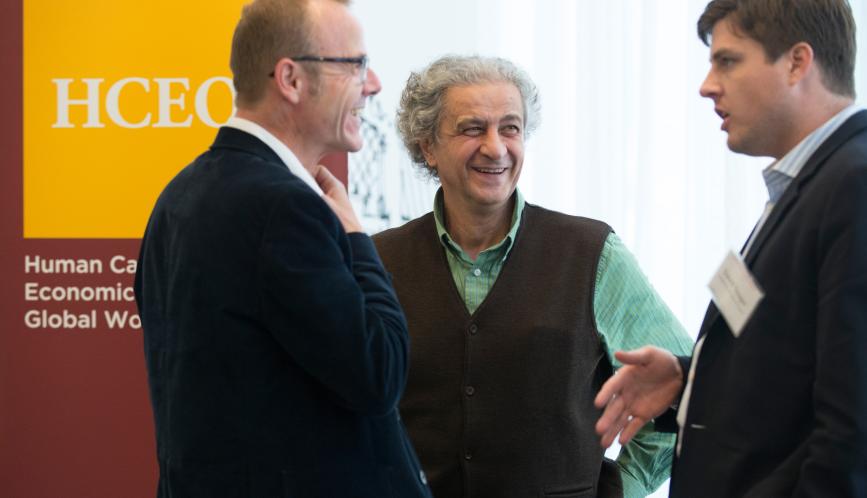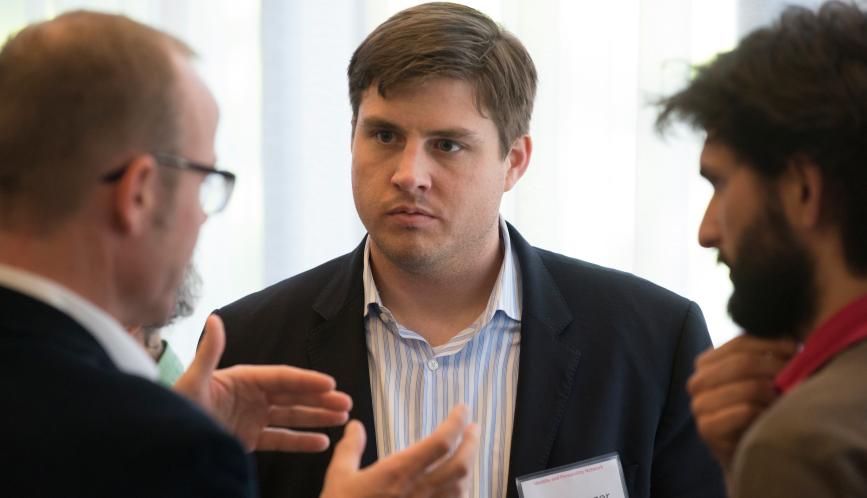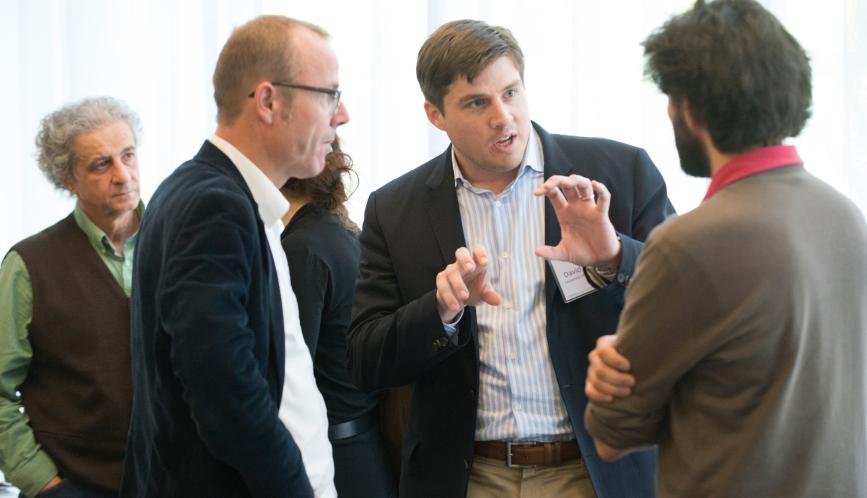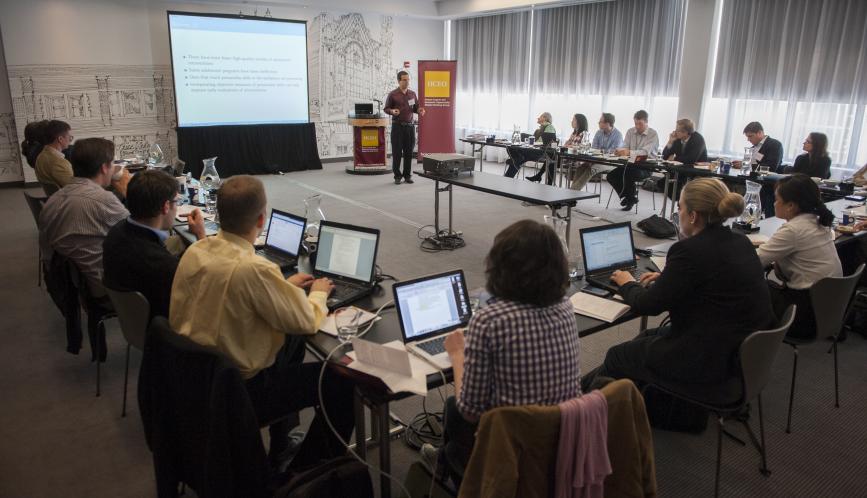The Conference on Personality and Identity Formation in Childhood and Adolescence included discussions of identity and personality from a wide range of disciplines and methodologies that went beyond the conventional treatment of personality in economics. The leaders of the group presented research from economics, neuroscience, and psychology. Armin Falk discussed his work on personality and morality; Rachel Kranton’s presentation reviewed her work with George Akerlof on the role of identity in decision making; Joseph Kable described his findings on the relationships between brain activity and behavior; and Angela Duckworth briefly presented her work on modeling personality. The presenters brought additional perspectives. Aldo Rustichini explained his studies of the strategic theory of mind and its development in childhood; Tim Kautz reviewed the state of research on the effects of interventions from birth to young adulthood on personality traits and outcomes; Ifat Levy demonstrated her findings for decision making under ambiguity and risk in adolescents and adults; Rebecca Shiner described her work on childhood predictors of adult personality; and Greg Walton and David Yeager presented their findings for a short term
intervention designed to change adolescents’ beliefs about the malleability of intelligence. The conference fostered cross-disciplinary conversations and pushed the conversation on the relationships between personality and identity and behavior beyond the traditional economic
understanding.
Several themes emerged from the presentations and discussions. The presentations and discussions at the Conference on Personality and Identity Formation in Childhood and Adolescence were motivated by concerns about inequality and closely related to the study of interventions. Several themes specific to this conference were raised:
- the relationship between interventions and personality traits;
- the measurement of personality with attention to social context; and
- the formation of beliefs and their development over the lifetime.
Following discussion, the participants made plans for future work. Problems in the measurement of personality were repeatedly returned to, and the creation of a subgroup focusing on these issues was proposed. Members of the network who were not present will be updated on the ideas and plans discussed at the conference.




